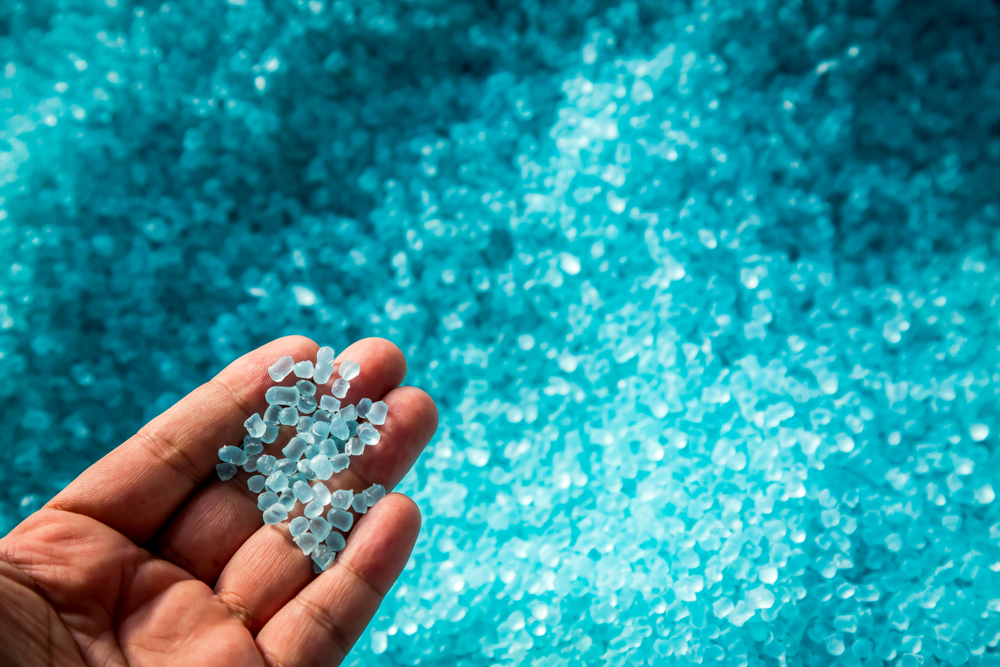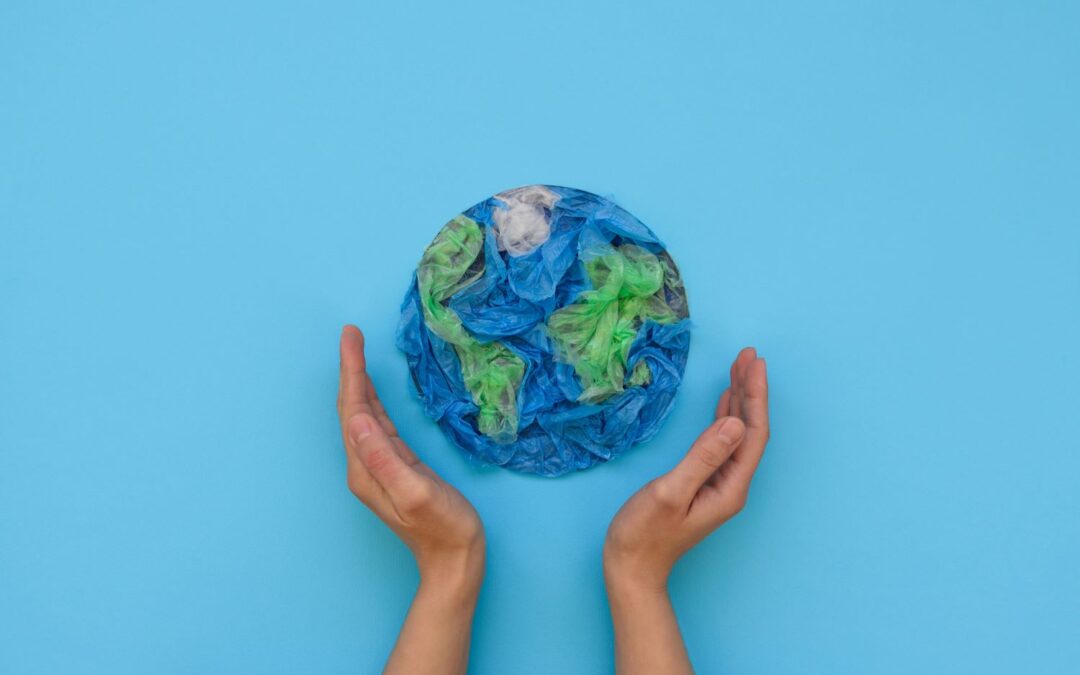
What Is the Difference Between Post-Consumer Recycled Content (PCR) and Post-Industrial Recycled Content (PIR)?
As demand for sustainable packaging grows, businesses are rethinking the materials behind their plastic packaging more than ever. From regulatory pressure to consumer preference, companies are asked to have less waste, less environmental impact, and fewer virgin resources. That’s where recycled content comes in.
Two of the most common recycled materials used in plastic packaging are Post-Consumer Recycled Content (PCR) and Post-Industrial Recycled Content (PIR). Both offer environmental benefits but differ significantly in quality, consistency, and performance.
Whether your priority is sustainability, product strength, or regulatory compliance, knowing the difference between PCR and PIR can help you make the best packaging decision for your business.
What Is PCR and What Is PIR?
When it comes to recycled plastic packaging, not all materials are created equal.
Post-Consumer Recycled Content (PCR)
PCR is made from plastic products used and discarded by consumers — think food containers, water bottles, or shopping bags. After these items are collected through public recycling systems, they’re sorted, cleaned, and reprocessed into new resin.
Because PCR materials come from a wide variety of sources and conditions, they tend to have more variability in quality. Contamination, mixed plastic types, and inconsistencies in feedstock can affect the color, clarity, and performance. Still, PCR is a valuable tool for reducing landfill waste and closing the loop on consumer plastic use.
Post-Industrial Recycled Content (PIR)
PIR is sourced directly from manufacturing scrap—trimmings, offcuts, and unused resin generated during production. Since this material never leaves the factory floor’s controlled environment, it’s cleaner, more consistent, and easier to reprocess.
The result is a high-quality recycled resin that closely mimics the properties of virgin material. In many cases, PIR-based products match or exceed the performance of standard plastic packaging, making them ideal for customers who want sustainability without sacrificing quality.
Comparing Post-Consumer Recycled Content (PCR) vs. Post-Industrial Recycled Content (PIR)
While both PCR and PIR contribute to a more sustainable supply chain, they perform differently in real-world packaging applications. Here’s how they compare in terms of quality, consistency, and usability.
Quality and Performance Comparison
PCR:
- Typically features a broader specification range due to the mixed and variable nature of consumer waste streams.
- May introduce inconsistencies in appearance, strength, or flexibility
- Requires additional cleaning, sorting, and filtration during processing, which can increase cost and complexity.
PIR:
- Offers a higher level of purity and consistent resin quality.
- Delivers mechanical properties similar to virgin material, making it more reliable in performance-sensitive applications.
- Easier to integrate into existing manufacturing processes without compromising product strength or clarity.
In many cases, PIR is the preferred choice for customers who need high-performing plastic packaging but still want to reduce environmental impact. This is especially true in flexible packaging applications where clarity, seal strength, and durability are non-negotiable.
Sustainability Impact and Environmental Benefits
PCR:
- Reduces landfill and ocean-bound waste by giving post-consumer plastic a second life.
- Supports closed-loop recycling, helping to create a more circular economy where consumer-used products are recovered and reused.
- Decreases the need for virgin resin, conserving fossil fuels and lowering greenhouse gas emissions associated with new plastic production.
PIR:
- Eliminates waste from the manufacturing process, keeping trimmings and off-cuts out of landfills.
- Lowers resource consumption by reusing clean, high-quality scrap materials that would otherwise be discarded.
- Maintains material integrity, allowing manufacturers to meet sustainability targets without compromising product performance.
Using PCR is often seen as a visible commitment to sustainability, especially in consumer-facing industries. PIR is also an efficient, low-waste option that supports internal recycling loops and helps manufacturers maximize raw material use.
According to the EPA’s Sustainable Materials Management guidelines, prioritizing recycled content is a key strategy for reducing environmental impact and supporting a circular economy.
Regulatory and Market Pressures
PCR:
- Often required to meet government mandates for recycled content, especially in consumer-facing packaging.
- Helps companies demonstrate compliance with regulations focused on post-consumer waste recovery.
- Aligns with retailer sustainability programs that prioritize visible, traceable recycled material
PIR:
- May not always qualify under specific recycled content regulations, depending on the standard.
- Still contributes to sustainability targets by reducing manufacturing waste and conserving resources.
- Valuable for applications where product performance cannot be compromised, but recycled content is still desired.
In today’s packaging landscape, balancing compliance with performance is critical. Businesses that understand how to integrate PCR and PIR can stay ahead of regulatory demands while delivering reliable, sustainable products.
Choosing the Right Material for Your Packaging Needs
There’s no one-size-fits-all approach to sustainable packaging. The right choice depends on your product, performance requirements, sustainability goals, and any regulatory standards you need to meet.
Post-Consumer Recycled Content (PCR) is often the go-to option when demonstrating clear environmental responsibility to regulators or consumers. It’s useful for brands highlighting sustainability efforts in marketing or meeting minimum recycled content thresholds set by legislation or retailer requirements.
Post-Industrial Recycled Content (PIR) is ideal for performance-driven applications. If your packaging must maintain clarity, strength, or precision tolerances, such as in food-safe, medical, or industrial settings, PIR offers the recycled benefits you want without compromising quality.
At A-Pac Manufacturing, we take a consultative approach to every packaging project. Our team works closely with you to understand your goals, evaluate your requirements, and recommend the right mix of materials — whether PCR, PIR, or a blend of both — to deliver packaging that performs and aligns with your sustainability targets.
A-Pac Manufacturing is Your Strategic Partner in Sustainable Packaging
Choosing between PCR and PIR doesn’t have to be a tradeoff between sustainability and performance. With A-Pac Manufacturing, you get the best of both. Our team works closely with trusted suppliers to responsibly source both PCR and PIR resin, ensuring all recycled content meets our strict standards for quality and performance. We’re experts in recycled resin and flexible packaging and are committed to helping you confidently navigate an evolving packaging landscape.
Ready to make your packaging more sustainable without sacrificing quality?
Contact us today for a custom quote, a sustainability consultation, or to request a sample of our recycled plastic packaging solutions.


